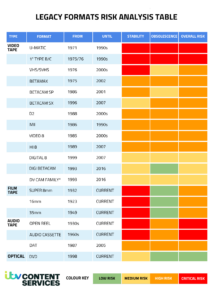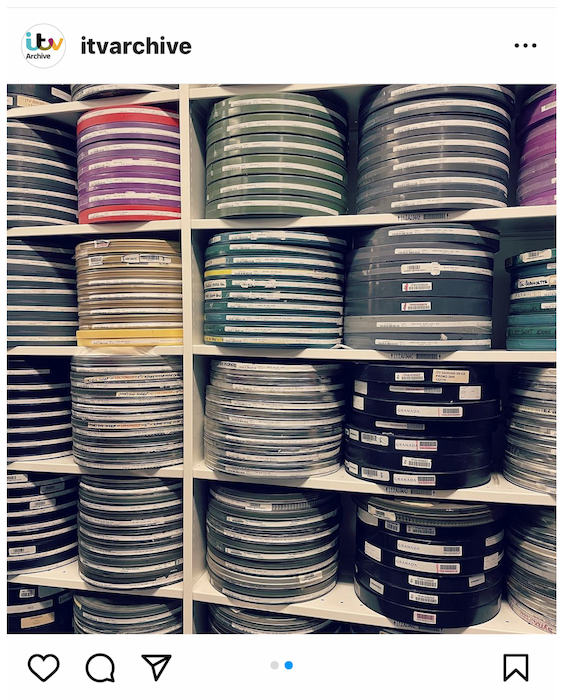The Urgency of Digitising Film and Videotape Archives
29 April 2024The Urgency of Digitising Film and Videotape Archives
In the corridors of history, time is both an ally and a formidable adversary. For film and videotape archives, the relentless march of time poses a pressing challenge: the imperative to digitise their collections before it might be too late. As analog formats deteriorate and technology advances, the urgency of digitising film and videotape archives becomes increasingly apparent, highlighting the need for swift action to preserve our cultural heritage for future generations.
Analog film and videotape, once the primary mediums for recording and preserving visual content, are now on borrowed time. The passage of years, coupled with environmental factors and inherent vulnerabilities, has taken its toll on these fragile artefacts. Magnetic tape deteriorates, film stock fades, and equipment becomes obsolete, rendering analog formats increasingly difficult to access and preserve. Every moment that passes brings us closer to the irreversible loss of these irreplaceable records of our past.
The urgency of digitising film and videotape archives lies not only in the physical degradation (stability risk) of analog materials but also in the more rapid pace of technological obsolescence (obsolescence risk). The equipment required to playback and digitise analog formats is becoming increasingly scarce and very difficult to maintain. As manufacturers discontinue production and support for legacy devices, archives face mounting challenges in sourcing replacement parts and servicing ageing equipment. The risk of technological extinction looms large, threatening to render entire collections inaccessible and obsolete. The table below helps to highlight both the stability and obsolescence risk or some popular legacy film and videotape formats.

Moreover, the window of opportunity for rescuing analog materials is rapidly closing. Each passing day brings us further from the original creation of these recordings, increasing the likelihood of irreparable damage or loss. Decay, mould, and degradation are relentless adversaries, eroding the integrity of analog film and videotape with each passing year. The longer archives delay digitisation efforts, the greater the risk of losing invaluable pieces of our cultural heritage forever.
Digitisation can slow and often reverse these processes via enhanced preservation efforts. Digital files can be subjected to various restoration techniques, including colour correction, noise reduction, and stabilisation, rejuvenating deteriorated footage and ensuring its longevity for future generations.
Beyond the physical limitations of analog formats, there are broader considerations driving the urgency of digitisation. Cultural shifts, demographic changes, and evolving audience expectations necessitate proactive measures to ensure the relevance and accessibility of archival materials in the digital age. As society becomes increasingly reliant on digital technologies for information consumption and dissemination, analog formats risk being marginalised and overlooked, relegating archival treasures to the shadows of obscurity.
The time sensitivity of digitising film and videotape archives extends beyond preservation to encompass broader imperatives of access, education, and cultural heritage. Archives serve as custodians of our collective memory, entrusted with preserving and disseminating our shared history for future generations. Digitisation represents a crucial step in fulfilling this mandate, ensuring that archival materials remain accessible, relevant, and meaningful in an ever-changing world.
Furthermore, digitisation unlocks new possibilities for engagement and interpretation, enabling archives to reach broader audiences and foster deeper connections with their collections. Online platforms, digital exhibits, and interactive experiences offer avenues for exploration and discovery, inviting users to interact with archival materials in innovative and immersive ways. By embracing digitisation, archives can transcend the constraints of physical space and time, opening doors to a world of discovery and enlightenment.
In conclusion, the time sensitivity of digitising film and videotape archives cannot be overstated. As custodians of our cultural heritage, archives bear a profound responsibility to safeguard our collective memory for future generations. The urgency of digitisation lies in the imperative to preserve, protect, and promote our shared history before it slips away into the mists of time. By seizing the opportunity to digitise their collections, archives can ensure that the stories, voices, and images of the past endure for generations to come.
If you would like access and preserve your own film archives and videotape collections by ensuring that they are safely digitised, or if you would like to restore (or even upscale) the content trapped within legacy formats then please contact the team at ITV Content Services who are always delighted to share their considerable insight and services.
ITV Content Services
104 Kirkstall Road
Leeds
LS3 1JS
www.itvcontentservices.com
Email: content.services@itv.com




